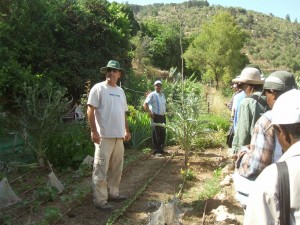Jordan’s mobile phone users will soon receive SMS tips on smart water use.
It’s part of a public awareness campaign to alert Jordanians to the vital need to protect against pollution and reduce water consumption. (Well, at least alert Jordanians with cell phones, or more accurately, those with cell phones and contracts with the Zain Group). Mobile users will get regular tips on how to conserve water. The Ministry of Water and Irrigation, in cooperation with telecommunications company Zain, is aiming for radical transformation in national behavior. Here’s the plan:
Zain has a subscriber base of nearly 3 million across the Hashemite Kingdom. Telecom Regulatory Commission data for 2011 puts national mobile phone penetration at 120 percent. That’s almost 8 million cell phones in the pockets and purses of 6.6 million people. My husband’s two phones start ringing and that screwball math makes sense.
Texting makes for an excellent conduit for delivering public messages.
The program was announced just weeks before regional water shortfalls made alarming headlines. The Green Economy in a Changing Arab World Report recently released by the Arab Forum for Environment and Development (AFED) states, “An annual per capita water share below 1,000 cubic meters is considered to pose a significant constraint to economic development, health and well-being; below 500 cubic meters, and water scarcity becomes a threat to life.”
Arwa reported that the Jordan-Arab region could face severe water crisis in the next three years, when it’s predicted that annual per capita water share will fall to less than 500 cubic meters. Hold the phone: that leaves us with less than one tenth of the average world citizen’s share of the wet stuff: shouldn’t that incite some local reaction?
I count four SUVs getting hand washed on my Amman street.
Unemployment was one of the primary drivers to the Arab Spring uprisings. AFED Secretary General Najib Saab suggests it’s unlikely that rapid development to serve economic needs would also respect environmental concerns. Trade and industry expansion will further stress limited water resources unless the planning process includes stringent conservation requirements.
“Arab states need to shift the focus from large-scale investments in supply-side projects and instead concentrate on demand-side policies that control and regulate water access, promote irrigation and water use efficiency, and prevent water pollution,” according to the report. Over 45 million people in Arab nations lack access to clean water.
Common use of chemicals in agriculture and unregulated release of inadequately treated waste into waterbodies are main drivers of regional water pollution. Antiquated agriculture processes, with calculated inefficiencies in the 30-50% range, consume 85% of available freshwater resources. Domestic use is excessive; acres of residential glazing require constant cleaning, gardens soak up irrigation, and in Jordan, a dusty car is taboo.
Implementing policy reforms to meet conservation targets, introducing water use regulations, and enforcing compliance are necessary steps to manage water resources in any region. Jordan might try metering our consumption, and charge a realistic tariff (around here, only cigarettes come cheaper than water).
The local challenge is to agree a long-term outlook and unblock political paralysis. Sending texts to phone users will raise awareness, maybe open a few minds.
But it’s only a drop in the bucket.
Image of Happy man with mobile phone from Shutterstock




this is very good and help help information
San Diego Plumber – point taken.
Would be useful if these campaigns were checked for effectiveness too. There’s probably a tipping point where the messages are ignored as just more spam.
We all admit that the power of text messaging has flourished over the years and it can really make a huge impact to users however, this shouldn’t be the only medium we can use to spread awareness and the call for action when it comes to campaigns, especially because there are communities who are unfortunate not to have gadgets like cellphones or smart phones. It can be one of the methods but not the only method.